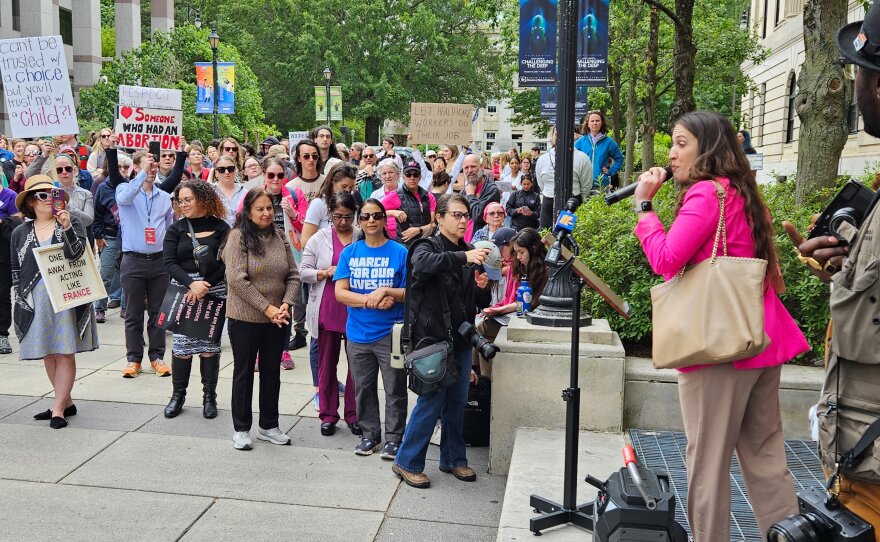The 46-page abortion bill released late Tuesday night is a lot to digest.
Gov. Roy Cooper said Wednesday that he’ll veto the bill, but Republicans say their members are united in support of the measure, which would be enough to override a veto.
Here’s an explanation of what’s in the controversial measure...
What are the time limits on abortion in the bill?
All abortions would be legal through 12 weeks of pregnancy — down from 20 weeks under current state law.
Victims of rape or incest would be able to get an abortion through 20 weeks of pregnancy, and abortions would be legal through 24 weeks when doctors diagnose a “life-limiting anomaly,” a disorder that would limit the lifespan of the child.
Abortions would be available at any point for women with a medical emergency.

Would anything change for women seeking an abortion before 12 weeks?
Yes, they’ll face a long list of “informed consent” requirements. Doctors would likely be handing patients a stack of paperwork to sign before starting the process; some of those requirements are already in state law, including a 72-hour waiting period.
Patients seeking a medication abortion would also need to schedule an in-person follow-up appointment with their doctor.
Several doctors who spoke against the bill on Wednesday said those steps could make it harder for some women to get abortions, particularly those who have difficulty getting to a doctor's office.
“Women with anomalies and maternal health conditions would have to jump through multiple additional hoops to access this life saving treatment,” Dr. Jill Hagey said. “While this bill allows for exceptions, my patients don't always fit into these exceptions in these narrow boxes.”
What happens to doctors who violate the law?
They’d be subject to disciplinary action from medical licensing boards. Prescribing medication abortion drugs without an in-person visit would trigger a $5,000 fine.
What changes for abortion clinics?
They’d face new licensing requirements, including an initial fee of $850, plus a fee of $75 per operating room. Surgical abortions after 12 weeks of pregnancy would have to be done in a hospital.
What else is in Senate Bill 20 that isn’t directly related to abortion?
Lots of things.
The bill is 46 pages long, and sponsors have added some broadly popular provisions that had been in other legislation. Those include:
- Paid parental leave for teachers and state employees: Eight weeks for the parent giving birth and four weeks for the other parent.
- $32 million to continue funding for childcare facilities at current levels. The facilities have been worried that once federal COVID dollars expire, they’ll be left with budget shortfalls.
- $1.5 million for the “Finish Line Grants” program promoted by Gov. Roy Cooper to help students finish community college degrees.
- Expanding the list of sexual crimes that require the offender to have their location monitored by satellite.
- Creating a new misdemeanor charge for assaulting a pregnant woman.
- Increasing reimbursement rates for foster parents.
- Updating the state’s “safe surrender” law for parents who want to give up their baby; this was the original bill that passed the House and Senate.
Rep. Sarah Stevens, R-Surry, said the other provisions were included to make the bill “a pro-woman holistic approach.”
“It's equipped with as much information and as many options as we could give at this point and focuses on the health and safety of the child,” Stevens said.
But Rep. Becky Carney, D-Mecklenburg, complained that she’d had a short time to review a complex bill, and that many of its own supporters deferred questions about the details to legislative staffers in committee on Tuesday.
“I'm disappointed that only a couple of the conference committee members … have been able to answer or have spoken up to answer questions,” Carney said. “A couple have, but it's fallen on a staff member.”










